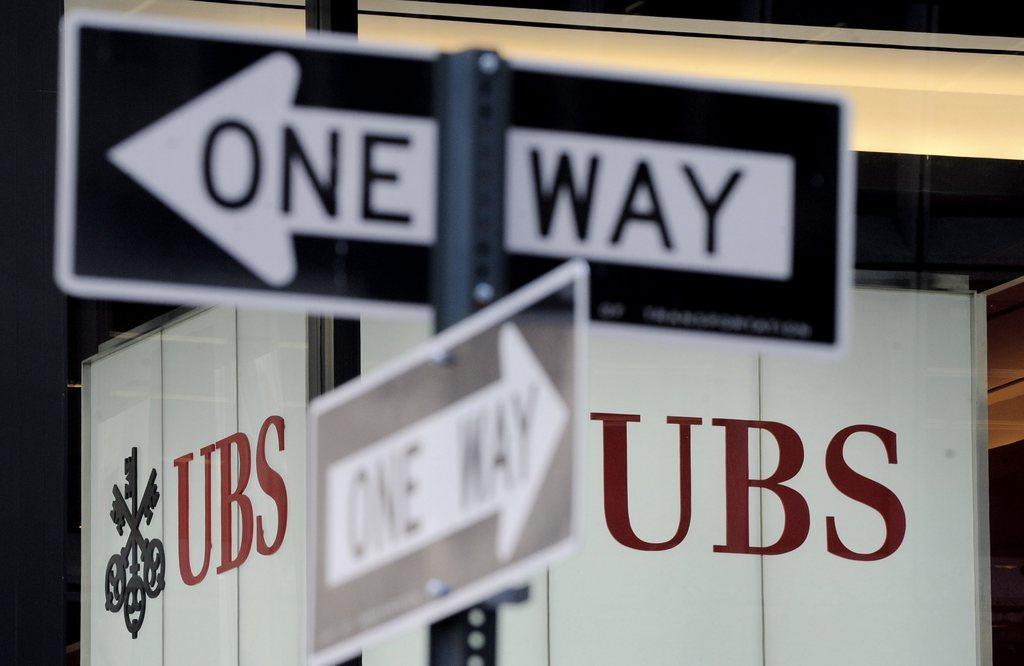
Is blockchain the solution for the next financial crisis?
A new technology - blockchain - could prove more effective at containing a financial crash than regulations or safeguards built into the current system.

In 2008, a financial crisis began to unfold that saw banks crumble, credit freeze up and economies go into free fall – and another financial crisis is inevitable, even if it’s impossible to predict when or where the ticking time bomb will explode.
A growing number of people believe the decentralized, encrypted blockchain ledger would do a better job than banks, regulators, policy makers and ratings agencies who failed so spectacularly to spot the last crisis or to contain its contagion a decade ago.
Among them is Marc Bettinger, who recently switched from a 20-year Swiss banking career at Credit Suisse and Julius Baer to ForctisExternal link. The blockchain start-up aims to create a new financial platform using the cryptocurrency, GenS.

More
Davos: Blockchain can no longer be ignored
Collapse in trust
Bettinger witnessed the carnage of the 2008 crisis first hand whilst working in the Swiss banking sector. “One of the biggest problems was a lack of trust,” he told swissinfo.ch in Davos. “Nobody knew how much bad debt was on bank balance sheets, so banks stopped trading with each other and liquidity came to a standstill.
“If banks are made to register their balance sheet and liquidity data on blockchain, this would vastly improve transparency and could alleviate fear when the next crisis comes along.”
Whilst complete transparency in trading would damage competitive advantage, Bettinger believes crucial data showing the basic health of banks should be openly available for real time analysis.
Digital smart contracts that are being pioneered on blockchain, could also be used to improve transparency of financial instruments that are traded around the world. Ten years ago, many banks were caught out by not understanding exactly what was contained within the complex mix of mortgage-backed securities that they were buying and selling.
Bettinger is convinced that blockchain could make these contracts clearer. He also believes that the pre-programmed automated nature of smart contracts could alleviate disputes between parties as algorithms do away with the need for trust between parties.
Return to 2006
But is any of this now necessary following a decade-long regulatory reform process that better equipped financial institutions to absorb the pain if markets crash again? Switzerland’s worst affected bank, UBS, had to be bailed out by the state after running into severe difficulties a decade ago.
Speaking to the Swiss public television economics programme Eco, Axel Weber, UBS chairman since 2012, is also optimistic of surviving another crash – without the need of a state bailout next time around.
Weber pointed out that UBS has cut its risky investment banking exposures, reduced headcount, built up reserves and fallen back on wealth management and its core domestic services. “We are a very different bank now,” Weber said. “We have returned to our roots with a stable, long term strategy.”
Other banks also feel more secure. “I do feel it’s a little bit like 2006 when we were all talking about whether we had solved the problem of economic crises,” Barclays bank CEO Jes Staley told one panel at WEF.
No Plan A
The problem is that the entire global financial system was totally blindsided by the 2008 crash. The chances are it will be hit by another curveball from an unlikely source in the future, WEF delegates were warned. New regulations insure against the 2008 crash, but what if the next crash presents a new set of problems?
“If we have another financial crisis there isn’t really a plan A,” said US economist Kenneth Rogoff.
Improving transparency, allowing key actors to better assess the source and extent of contagion, might at least help contain the spread of pain and restore confidence and trust in the system during times of extreme stress.
Several banks and insurers are currently experimenting with blockchain technology. These include Swiss banks UBS and Credit Suisse who are part of a consortium developing the Utility Settlement Coin transaction system The Swiss stock exchange and several insurers are also looking into blockchain applications.
The objective of most, if not all, projects is to improve the speed and cost of financial transactions and insurance policies. According to blockchain enthusiasts, like Bettinger, the ledger’s transparent qualities could also improve the financial sector’s stability record too.
“Blockchain can’t solve everything, but it could vastly improve transparency and efficiency,” he said.

More
Why Switzerland should become a Crypto Nation

In compliance with the JTI standards
More: SWI swissinfo.ch certified by the Journalism Trust Initiative




























You can find an overview of ongoing debates with our journalists here . Please join us!
If you want to start a conversation about a topic raised in this article or want to report factual errors, email us at english@swissinfo.ch.